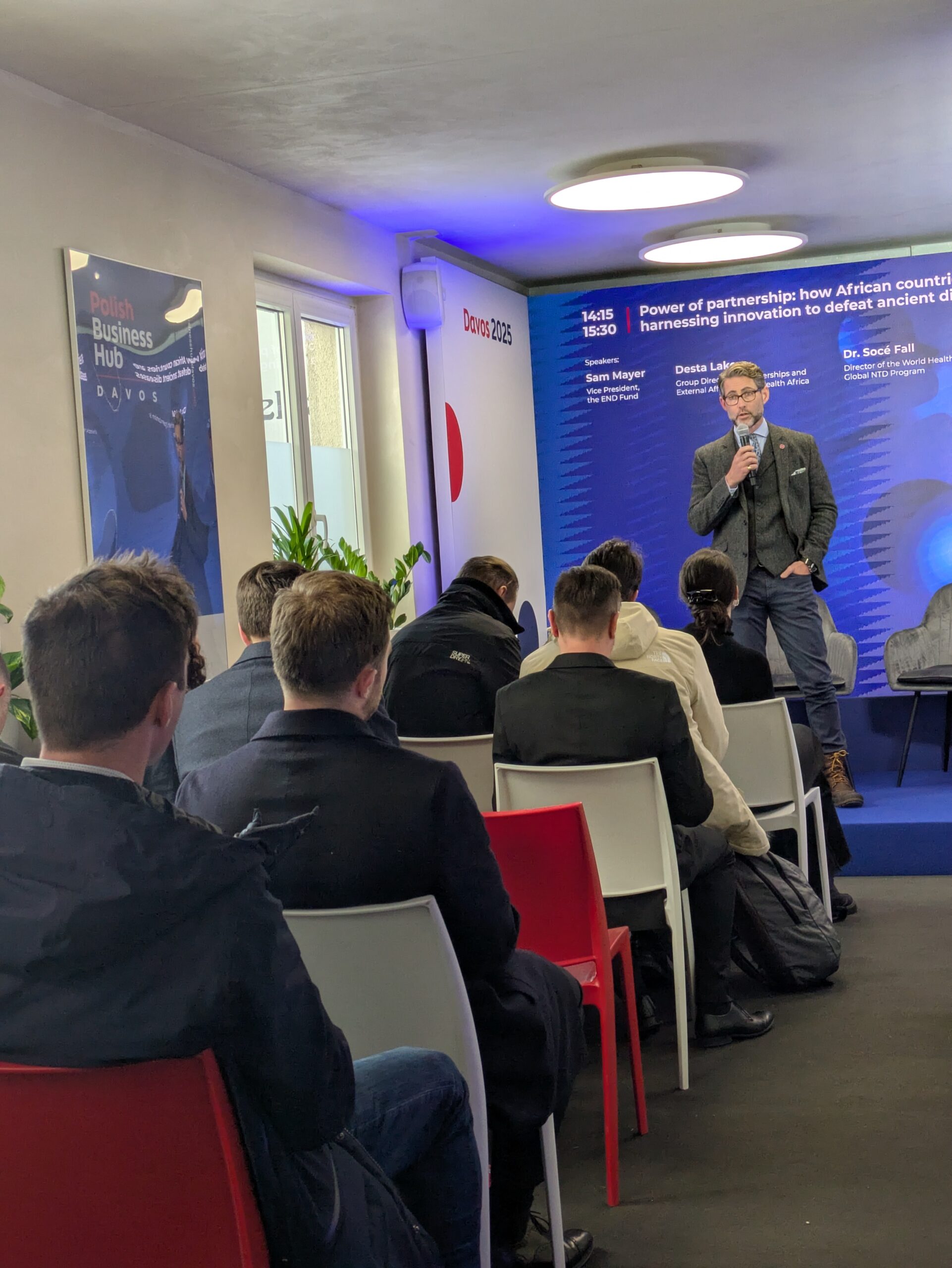In the hallways at the World Economic Forum, building a coalition to end neglected tropical diseases
Our Day in the Life Series offers a unique opportunity to dive into some of the most important work that our employees are doing to end neglected tropical diseases (NTDs). These snapshots are important windows into some of the key moments that move the NTD elimination needle. Stay tuned as we roll out new END Fund snapshots.

The World Economic Forum (WEF) in Davos, Switzerland is where global leaders converge to tackle the world’s most pressing challenges – including those that often don’t make front-page news. For Sam Macintosh, Vice President of Global Strategic Partnerships at the END Fund, this past January was a crucial opportunity to promote neglected tropical diseases as a global priority.
At WEF, Sam moves between sessions, spontaneous hallway discussions, and formal panels – each an opportunity to advocate for sustained investment in eliminating neglected tropical diseases. In meetings with African health ministries, he discusses the challenges and opportunities of scaling up deworming programs, while conversations with donors explore new financing strategies to close funding gaps. “It’s about finding credible, committed, and effective champions,” he explains. “We need political will, philanthropic support, community engagement and, most importantly, coordination between all three, to make real progress.”
One of the week’s most profound moments is the END Fund’s screening of The Fly Collectors, a documentary film that sheds light on the painstaking work of volunteers in Senegal that trap blackflies to test for ongoing prevalence of river blindness – a critical part of the country’s journey toward elimination of the disease.

“I think [the screening] was a really unusual thing to do in that environment. And for the people who were engaged, it really stood out because the film is a prime example of us leading with our values in our communications and our storytelling work,” says Sam.
“When most of the week’s events were dominated by geopolitics, [the side event] was a really powerful mixture of compelling messages that spoke to business leaders as much as humanitarians, and it helped create a platform for the film and the people whose stories it represents stand out in an otherwise really challenging space.”
Amid the crowded halls and fast-moving conversations, Sam navigates a complex network of global economic players, including government officials, public health experts, and philanthropic leaders. “It’s about building momentum,” he explains. “NTDs affect over 1.6 billion people, yet they often get overlooked, particularly when the news cycle is moving so quickly. Our role is to keep them on the agenda.”
Beyond the formal sessions, the real work happens during side conversations – over coffee, in hallways, and at evening receptions. These informal moments lay the groundwork for mobilizing resources and funding agreements that will shape future interventions.
It’s not just about health. Eliminating NTDs leads to stronger economies, better education outcomes, and more resilient communities – goals that are even more important in the face of climate change.
The END Fund’s mission is built on collaboration, and Sam’s presence at WEF reflects that mindset. By bringing together thought partners – government agencies, NGOs, and private sector leaders – he helps drive forward solutions that are both scalable and sustainable. The impact of these efforts isn’t measured in a single meeting or speech, but in the momentum they all contribute to and the long-term partnerships and policy shifts that emerge from gatherings like the World Economic Forum.
As the week wraps up, Sam reflects on the work ahead. “WEF is an incredible platform, but real change can only happen with good follow-up,” he says. “Our job now is to turn these conversations into action – into treatments, into funding, into partnerships that will help end NTDs for good.”

